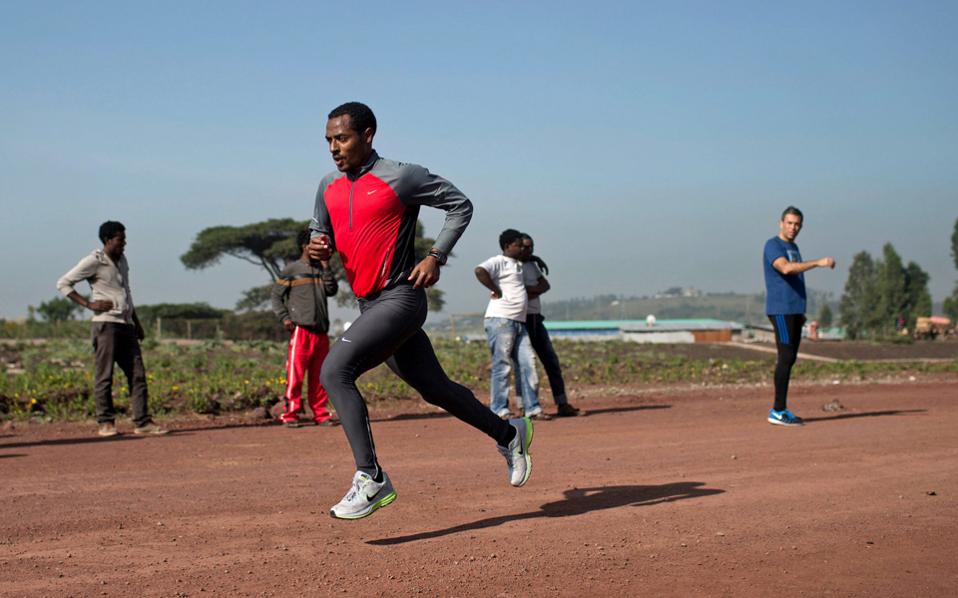Scientists eye the 2-hour marathon barrier

The cautious have likened it to an attempt to send a manned mission to Mars. However, Yannis Pitsiladis, professor of sport and exercise science at the University of Brighton in the UK, is aiming to achieve it by 2019.
He hopes that with the appropriate mix of science, technology and training techniques – and of course without the use of banned substances – he will help athletes break the two-hour barrier for the marathon. He has a team of international experts, including some from Greece, working on the analysis of satellite data.
The project is called Sub2 and cooperating institutions include the National Observatory of Athens, the University of Athens and the universities of Cape Town and Vienna.
As part of his research, Pitsiladis is carrying out ergonomic tests on young people and top runners from Ethiopia. He is also conducting tests below sea level in the Dead Sea area in his search for the perfect running conditions.
Ethiopian long-distance runner Kenenisa Bekele is taking part in the Sub2 project, not necessarily to break the two-hour barrier but to help experts understand how it could happen. Bekele won the Berlin Marathon in September, covering the 26.2 miles (42.195 kilometeres) in 2 hours, 3 minutes and 3 seconds.
As part of Sub2, Iphigenia Keramitsoglou, a senior researcher at the National Observatory, and Constantinos Cartalis, a professor of environmental physics at Athens University, are working with Pitsiladis. The Greek scientists are developing a method which, through the collection of satellite data, can observe the urban environment and provide important information about the prevailing conditions (air and ground temperatures) during a race.
Keramitsoglou explains that the analysis of the data provides information that would be similar to that from ground-level sensors placed along each kilometer of the course. Also, through the use of existing algorithms, the data can be made available in real time and can be updated every 5-15 minutes.
“The thinking behind it is that even minor details or changes in the temperature can affect the performance or stamina of a runner,” says Cartalis. “This system gives the athlete access to information that would not be available otherwise.”
Keramitsoglou explains that there are many changes in the temperature at each location, as well as over time, and that they can be caused by numerous factors, including the road and building materials used in a city, not to mention green areas. This collection and analysis of satellite data has already been used in a mobile phone application called Treasure, which provides the user with risk analysis on very hot days. Based on his or her age, as well as other parameters, the user is given a real-time assessment of the risk they face due to the heat. The app also indicates where the closest air-conditioned facilities are and how best to reach them.
The service was given a test run at the recent Brighton Marathon. Cartalis explains that physiology and other expertise used in the Sub2 project are deployed to analyze ground and air temperature.
In a previous interview in The New York Times, Pitsiladis had made an indirect reference to other applications. He had handed out 30 small thermometers that his runners could use during a race. “I want to be able to link the land temperature to the body temperature,” Pitsiladis said. “What effect does it have?” He said that someone could, for example, follow the runner and advise him to increase speed at points that are cooler or to slow down in other spots.
Kathimerini met with Pitsiladis when he was in the Greek seaside town of Leptokarya last year to speak at a sports medicine conference. He spoke mostly about his research and the battle against drugs in sport through the erythropoietin (EPO) test that he developed. When he finished his speech, he left quickly to catch a flight to London. Like Bekele did this year, he was off to test his powers at the city's annual marathon.





